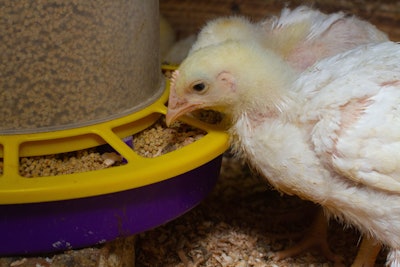
The United States Department of Agriculture (USDA) has finalized the Transparency in Poultry Grower Contracting and Tournaments rule – a rule that has the National Chicken Council (NCC) concerned.
This rule is part of a suite of Packers and Stockyards Act rules proposed by USDA.
According to a press release from USDA, the rule, requires live poultry dealers to give critical information about terms of their agreements to the poultry growers with whom they contract to raise birds.
The final rule, according to USDA, requires a “Live Poultry Dealer Disclosure Document” that provides growers with information they need to have a better understanding of realistic outcomes they can expect before making important financial decisions, such as capital-intensive facility improvements or taking out loans. In particular, the rule requires that dealers disclose earnings for growers by quintile, establish minimum flock placements, and explain variable costs growers may incur and how companies handle certain important circumstances such as sick flocks and natural disasters. It also establishes an accountability and governance framework that must be certified by the poultry company’s CEO.
The rule separately requires dealers provide tournament-specific disclosures of inputs to poultry growers who are paid using a poultry grower ranking system and requires that companies also show the distribution of inputs, housing specifications, and any feed disruptions for all the growers in the tournament, at the time of payment, the USDA press release stated. The names of the growers will not be disclosed to protect their privacy. Under the final rule, live poultry dealers that slaughter fewer than 2 million live pounds of broilers weekly or 104 million pounds annually are exempt from these requirements, provided they do not require additional capital investments.
The final rule will be published in the Federal Register. A preview of the rule is available on the USDA Agricultural Marketing Service website.
National Chicken Council reacts
“Make no mistake, this isn’t about transparency,” said NCC President Mike Brown. “This rule was specifically designed to chum the water for lawsuits. It is just the first salvo in the administration’s attempts to resurrect failed policies that would dismantle a successful industry structure that has benefited farmers, chicken companies and ultimately consumers all around the world.
“This is the latest example of Bidenomics pushing increased regulations, red tape and costs onto businesses causing record inflation and input costs, and threatening food security and potentially raising grocery bills even further for Americans.”
NCC raised several specific concerns with the rule:
- It appears the industry could have to retroactively amend 25,000 contracts in two months over three major federal holidays;
- The fact that AMS has failed to consider the risks of frivolous litigation, industry-wide efficiency losses, costs to farmers and consumers from new regulatory burdens, and the effects on inflation. AMS has underestimated the hourly rates, number of people involved, and time required of executives, compliance officers, regulatory consultants, attorneys, and other services required to implement the rule. With supply chain disruptions, loose fiscal/monetary policy, labor shortages, rising feed costs, lingering effects of the pandemic, and geopolitical events all placing immense cost pressures on the supply chain, AMS is recklessly injecting even more costs that will hurt everyone who touches chicken—growers, companies, and consumers;
- The requirement that contracts specify minimum annual placements and minimum stocking densities goes well beyond mere disclosure, imposes terms on private contracts, and would wrongfully impede the ability to adjust to market dynamics, including pandemics, natural disasters and weather events;
- The scope of the disclosures required are not limited to information that would actually affect grower compensation expectations. All information that is unrelated to compensation or that is publicly available still has to be disclosed. Several of the proposed disclosures are unhelpful and introduce unnecessary complexity into an already highly regulated process;
- The governance framework and certification in its entirety is an incredibly costly measure that does not provide useful information and does not address a real concern; and
- It includes forward-looking projections that should be omitted, as they by definition cannot be accurate and risk causing significant confusion.
National Turkey Federation reacts
Joel Brandenberger, National Turkey Federation (NTF) president and CEO, also expressed concern about the rule, even though he acknowledged that it is not directly pertinent to the turkey industry.
“The National Turkey Federation, working through an industry task force of grower and processor members, developed policy more than 20 years ago supporting turkey production contracts that allow both parties to fully understand the nature of the contractual relationship they are entering,” Brandenberger said. “USDA’s proposed rule in 2022 contained provisions we believe went beyond this fundamental goal of contract transparency and reflected some basic misunderstandings about turkey production. We provided detailed comments to USDA at that time and after further review, USDA’s Transparency in Poultry Growing Contracts and Tournaments rule does not pertain to the turkey industry and does not have impact on the turkey industry.”

















